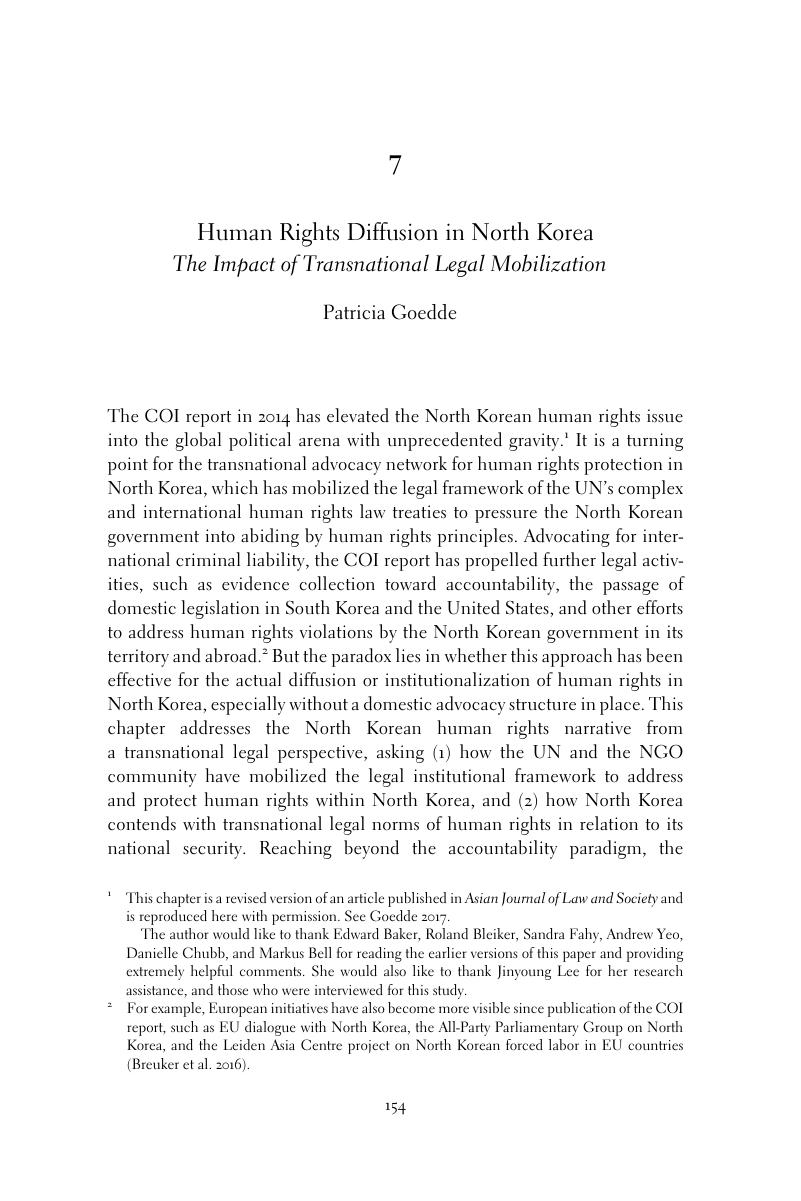Book contents
- North Korean Human Rights
- North Korean Human Rights
- Copyright page
- Dedication
- Contents
- Figures
- Tables
- Notes on Contributors
- Foreword
- Preface and Acknowledgments
- Note on Transliteration
- Abbreviations
- 1 Adaptive Activism
- Part I Domestic Discourse and Activism
- Part II Transnational Networks
- 6 NGOs As Discursive Catalysts at the United Nations and Beyond
- 7 Human Rights Diffusion in North Korea
- 8 The Politics of Networking
- Part III North Korean Voices
- Index
- References
7 - Human Rights Diffusion in North Korea
The Impact of Transnational Legal Mobilization
from Part II - Transnational Networks
Published online by Cambridge University Press: 02 August 2018
- North Korean Human Rights
- North Korean Human Rights
- Copyright page
- Dedication
- Contents
- Figures
- Tables
- Notes on Contributors
- Foreword
- Preface and Acknowledgments
- Note on Transliteration
- Abbreviations
- 1 Adaptive Activism
- Part I Domestic Discourse and Activism
- Part II Transnational Networks
- 6 NGOs As Discursive Catalysts at the United Nations and Beyond
- 7 Human Rights Diffusion in North Korea
- 8 The Politics of Networking
- Part III North Korean Voices
- Index
- References
Summary

- Type
- Chapter
- Information
- North Korean Human RightsActivists and Networks, pp. 154 - 176Publisher: Cambridge University PressPrint publication year: 2018
References
- 1
- Cited by



